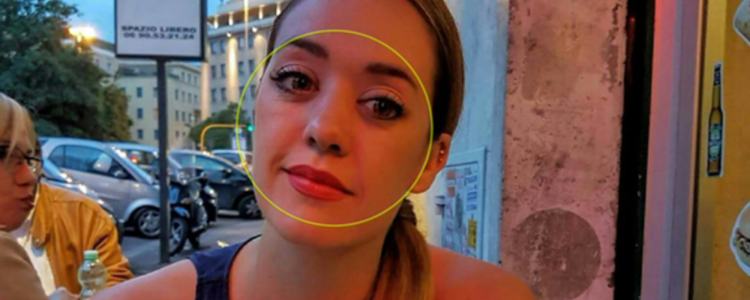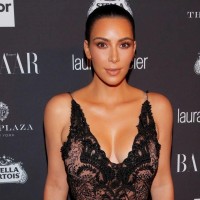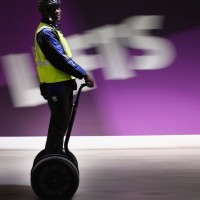Holy shit, my phone thinks I need plastic surgery.
The signs have been subtle but it’s clear my phone wants me to fix my face.
Specifically my nose.
The effects of social media on self-esteem are well documented. But app designers are taking this even further, moving us towards an exclusive, narrow definition of beauty. One that does more harm than good.
The shape of my nose it has been been bugging more than usual of late. It’s often assumed that I’m of Maori or Pacific Island descent because of the shape of my nose (I’m Dutch American).
This never bothered me growing up. I like that I have tanned skin and an interesting eye color.
But lately, I was hating every photo I took. I preferred photos where I was looking away from the camera. I deleted most of the others. The only photos I liked were ones through Snapchat, using the beauty filter. I started defaulting to Snapchat for every selfie. I never thought much about why I preferred these to unfiltered photos.

It’s taken a while to notice, but my smartphone is making me prettier, according to a Westernized algorithm.
My Samsung S7 comes with editing tools that along with removing red eyes, can slim my face or make my eyes bigger.
Snapchat’s popular “beauty” filter makes my face slimmer, my eyes bigger AND my nose narrower.
I’d naively assumed the Snapchat filter was a color tint Instagram filters are.
Then I realized, my favorite Snapchat filter has been smoothing my skin, whitening my teeth and making my nose narrower.
And I was starting to prefer my face with a nose job!

Snapchat is a medium considered more authentic, ephemeral and real than other social platforms. We expect Snapchat to be different from the polish and finesse of Instagram. Yet here I was, giving myself digital surgery.
Then it really hit me. Even my Twitter profile has a version of my face using this Snapchat filter. I have been unintentionally communicating a photoshopped version of my own face for months.
And I had no idea.
But I had started really hating my nose.
But photoshopping is normal nowadays, right?
I work in digital and social media. I’m not naive. When I open a magazine, I expect to see photoshopped models. I know the media presents an enhanced version of reality, but the lines are a little grayer on social networks. As Essena O’Neill proved, we’re still expecting to see “real life” on social media, even if we know better deep down.
As we tie our self-esteem to digital versions, we become steadier less content with our real selves.
Tech personality Savannah Peterson recently spoke at a tech conference in New Zealand and was dismayed to find her speaker profile had been edited to “fit in creatively”. Along with flipping her face so her bangs fell on the opposite side, her hair was extended and her face shape changed.
Being photoshopped without permission is offensive, yet we allow our photo apps to tweak our faces every day!
As we tie our self-esteem to digital versions, we become steadier less content with our real selves.

A global standard of beauty
Here’s the really insidious problem with photo filters, they are programed to Western beauty ideals. They tell Polynesian and African American girls that their noses are too wide. They tell Asian women their eyes are too small. And it tells every woman, that their face should be skinnier.
Even Rhianna recently called out Snapchat’s filters for making her nose smaller and her face whiter.
I can’t help but wonder whether these widely used photos apps create a global definition of beauty. One that will continue to see perfectly symmetrical white faces overshadow other concepts of beauty.
We can not underestimate the effect on self-esteem photo filters can have, especially for young women growing up with Snapchat as their default camera.
It’s just how it is
I refuse to accept that the beauty industry and social media are so far gone that there’s no way back. This is simply a lazy “it’s too hard to change” excuse.
I’ve always wondered how make-up advertising isn’t policed more heavily by advertising standards. Surely this is verging on false advertising?

Some countries are taking concrete steps. France recently banned the use of photoshopped covers for magazines. French advertising that uses photoshopped images MUST, by law, include a disclaimer telling the audience this. This is also law in Israel. The inspirational Kate Winslet has a “no photoshop’ clause in her contract with L’Oreal.
A serious problem
Photo app designers have a responsibility to consider carefully. They can shape the world’s view on beauty.
Can we appease our selfie appetites, without simultaneously creating a homogenous standard of beauty?
Can we program our filters without reinforcing a singular view on who is beautiful?
I hope so.
I’m Nicole Williams, founder of Tech Marketer, and I love blogging about learning, creativity and marketing. Thank you so much for reading!
This article first appeared on my Medium profile.









